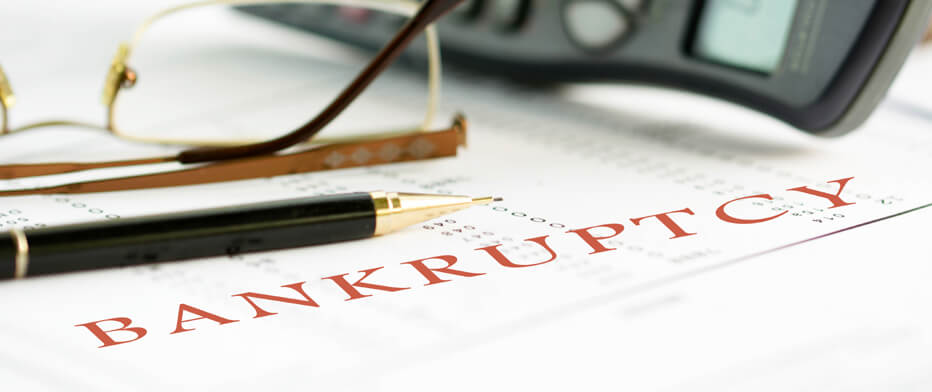What Bankruptcy Can and Cannot Fix


Key Takeaways
- Bankruptcy provides legal protections not available through other debt-relief options.
- Filing bankruptcy stops debt collection activity, legal proceedings, and judgment enforcement.
- You may be able to save property through bankruptcy.
- Bankruptcy may not wipe out all debts.
You owe creditors more money than you can afford to pay and need relief from the high monthly payments. However, not all options offer the same protection and benefits. And each has its own set of drawbacks. Before you decide to go the bankruptcy route, consider what it will and will not fix.
There are two types of consumer bankruptcy. Chapter 7 does not require you to repay any debts but will sell all non-exempt property to repay what you can. Chapter 13 provides you with time to catch up with delinquencies but requires a repayment schedule of three or five years.
3 Key Protections Offered Through Bankruptcy
Automatic Stay
One of the most significant protections available is the automatic stay issued when you file a bankruptcy petition. It can:
- End debt collection calls.
- Halt legal proceedings such as an eviction, foreclosure, or repossession
- Cancel judgment enforcement.
- Prevent further wage garnishments.
Anyone wishing to circumvent the automatic stay must present their reasoning before a judge and prove the bankruptcy court does not impact the action. For instance, a judge might allow a divorce to proceed while in bankruptcy.
Property Protections Available Only Through Chapter 13
Chapter 13 requires creditor repayment using 100% of your disposable income, as defined by the courts. During repayment, you receive property protection through the automatic stay. This time allows you to bring delinquent accounts current, modify loans, or receive forgiveness of a portion of the debt owed.
You may qualify to keep your non-exempt property and, in some cases, reduce the principal amount owed, even on secured debts.
Wipes Out Most Debts
The reason you are filing a bankruptcy petition is to receive debt relief through a discharge. Once a judge approves the discharge, you no longer have a legal obligation to repay the remaining balances, and creditors may not contact you regarding the account.
Most personal consumer debts qualify for debt forgiveness. Chapter 7 could eliminate debts within six months, but Chapter 13 will not discharge any balances until you complete the repayment plan.
5 Things Bankruptcy Does Not Protect
Keeping property, you cannot afford: If you cannot catch up on an account secured by an asset before the discharge, filing bankruptcy will not save it. Not including the bill in the petition orif you are unable to bring it current within the designated time, the lender may repossess or foreclose after the bankruptcy protections end.
Eliminate Support Payments. Bankruptcy will never alter or eliminate child support or alimony. The only way to adjust those obligations is through family court.
Get rid of student loans. In most cases, bankruptcy is not a remedy for high student loans debts or unmanageable payments. However, you can enroll in an income-based repayment program to qualify for a loan forgiveness program.
Discharge tax debts and government fines or penalties. The government has extraordinary means to collect. Agencies can garnish wages, take tax refunds, and, in some cases, receive a portion of your social security or disability payments to repay the debt. However, there are circumstances when you can include some government debts that are more than three years old.
Final Thoughts
Before deciding bankruptcy is the best debt relief option, consider what the process can and cannot do. If you do not qualify for Chapter 7 or have assets you want to retain, non-bankruptcy options such as debt settlement may be a better solution.
FAQ

REPRESENTATIVE EXAMPLE OF APR
If you borrow $30,000 over a term of 5 years (60 months) with an APR of 4.99% you will pay $566.00 each month. The total amount payable will be $33,959.97, with total interest of $3,959.97.
ANNUAL PERCENTAGE RATE (APR)
Annual Percentage Rate (APR) represents the annualized interest rate you are charged for borrowing. It is the combination of the nominal interest rate and some additional costs such as fees involved when incurring debt. Our lender offers APRs for personal loans, cash advance loans, installment loans and debt consolidation loans from 4.99% to 35.99%. Since New Start Capital does not directly issue loans, we cannot deliver any specifics or guarantee the APR you will be offered. The APR depends solely on your lender’s decision, based on various factors including your credit score, credit history, income, and some other information you supply in your request. For more information regarding the APR contact your lender.